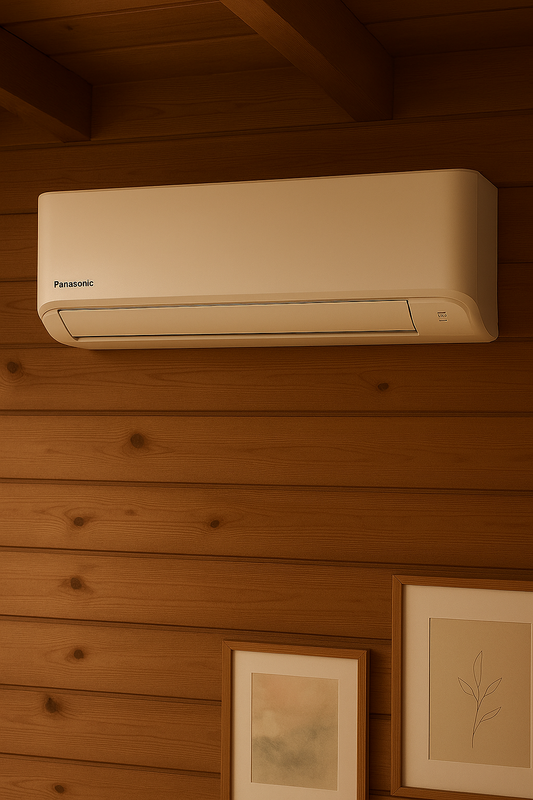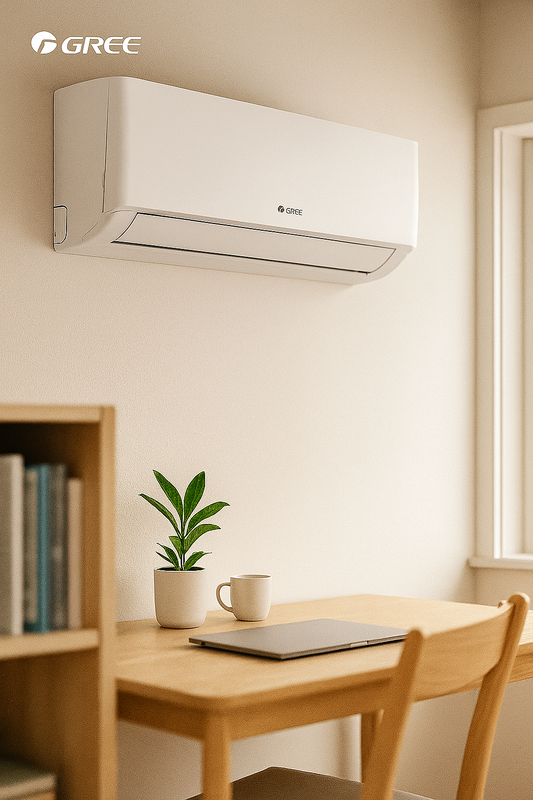Varmvattenberedare Pris med Installation: En Guide
Inledning
Att köpa en varmvattenberedare med installation är en viktig investering för många hushåll och företag. I denna artikel kommer vi att utforska priset för varmvattenberedare med installation, dess definition, fördelar, användningsområden, relaterade tekniker och vanliga frågor.
Definition och Bakgrund
En varmvattenberedare är en apparat som används för att värma och lagra varmvatten för hushållsändamål. Installation av en varmvattenberedare innebär att en kvalificerad tekniker installerar enheten på plats.
Varmvattenberedare finns i olika storlekar och typer, inklusive elektriska, gasdrivna och solvärmade varmvattenberedare. Valet av varmvattenberedare beror på individuella behov, energieffektivitet och tillgängliga resurser.
Fördelar och Användningsområden
Att ha en varmvattenberedare med installation erbjuder flera fördelar. För det första garanterar det tillgång till varmvatten för bad, diskning och andra hushållsaktiviteter. Dessutom kan en energieffektiv varmvattenberedare bidra till lägre energikostnader.
Installation av varmvattenberedare är vanligt både i bostäder och kommersiella fastigheter. Restauranger, hotell, sjukhus och andra verksamheter är beroende av tillförlitlig tillgång till varmvatten för att möta sina behov.
Relaterade Tekniker, Begrepp eller Variationer
Utöver traditionella varmvattenberedare finns det även tanklösa varmvattensystem, även kända som "tankless" varmvattenberedare. Dessa enheter värmer vatten direkt vid användning, vilket kan vara mer energieffektivt och platsbesparande jämfört med konventionella varmvattenberedare. Det är viktigt att överväga olika alternativ och deras kostnader vid köp av varmvattenberedare med installation.
Vanliga Frågor (FAQ)
-
Vad påverkar priset på varmvattenberedare med installation?
Priset kan variera beroende på typen av varmvattenberedare, dess kapacitet, installationens omfattning och arbetskostnader. -
Hur lång tid tar installationen av en varmvattenberedare?
Installationstiden kan variera beroende på den befintliga VVS-infrastrukturen och typen av varmvattenberedare. En erfaren installatör kan ge en mer exakt tidsram baserat på specifika omständigheter. -
Vilka underhållskrav finns för varmvattenberedare?
Regelbunden rengöring, kontroll av värmeelement och eventuell avkalkning kan vara nödvändiga för att bibehålla varmvattenberedarens prestanda och livslängd.
Sammanfattning
Att köpa en varmvattenberedare med installation är en betydande ekonomisk investering. Genom att förstå priset, fördelarna, olika typer och installationens krav kan konsumenter fatta välgrundade beslut. Oavsett om det handlar om att förnya en befintlig varmvattenberedare eller installera en helt ny enhet är det viktigt att överväga både kostnader och fördelar för att uppnå optimal komfort och effektivitet.
Installation Process
Installation of a hot water heater involves several steps to ensure proper functionality and safety. The technician will assess the location, connect the necessary plumbing, and configure the temperature settings. Proper installation is crucial for the long-term performance of the hot water heater.
Energy Efficiency Considerations
When choosing a hot water heater with installation, it's essential to consider the energy efficiency rating of the unit. Energy-efficient models can reduce overall energy consumption and lower utility bills. Understanding the energy efficiency labels and features can help consumers make informed decisions.
Case Study: Residential Installation
In a residential setting, a family decides to upgrade their traditional hot water heater to a tankless system. The installation process involves removing the old unit, making adjustments to the plumbing, and integrating the new tankless hot water heater. The family experiences improved energy savings and consistent hot water supply.
Industry Regulations and Compliance
Installation of hot water heaters must adhere to industry regulations and building codes. Compliance with safety standards and proper ventilation requirements are essential for a successful installation. Consumers should work with licensed professionals to ensure compliance with all regulations.
Integration with Renewable Energy Sources
Advancements in technology allow for the integration of hot water heaters with renewable energy sources, such as solar panels or heat pumps. These eco-friendly solutions offer sustainable hot water heating options and reduce reliance on traditional energy sources.
Cost-Benefit Analysis
Conducting a cost-benefit analysis can help consumers evaluate the long-term savings and benefits of investing in a hot water heater with installation. Considering factors such as initial costs, energy savings, and maintenance expenses can guide decision-making.
Additional Maintenance Tips
In addition to regular cleaning and inspections, hot water heaters may benefit from periodic maintenance tasks such as flushing the tank to remove sediment buildup and checking for leaks in the system. These proactive measures can prolong the lifespan of the hot water heater and ensure optimal performance.
Environmental Impact
The environmental impact of hot water heaters with installation is an important consideration. Energy-efficient models and the integration of renewable energy sources can contribute to reducing carbon emissions and promoting sustainability. Understanding the environmental implications can align with eco-conscious consumer choices.
Comparative Analysis of Installation Services
Consumers may benefit from conducting a comparative analysis of installation services offered by different providers. Factors such as warranty coverage, installation timelines, and post-installation support can influence the overall value of the service. Comparing multiple quotes can aid in making an informed decision.
Remote Monitoring and Control
Some modern hot water heaters offer remote monitoring and control capabilities, allowing users to adjust temperature settings and track energy usage through smartphone applications or online platforms. This technological feature enhances convenience and enables efficient management of hot water usage.
Localized Incentives and Rebates
Local governments or utility companies may offer incentives or rebates for the installation of energy-efficient hot water heaters. Exploring available programs and rebates in the area can provide potential cost savings and support sustainable energy initiatives.
Case Study: Commercial Installation
In a commercial setting, a restaurant upgrades to a high-capacity commercial hot water heater to meet the demands of its operations. The installation process involves considerations for safety regulations, water volume requirements, and integration with existing plumbing systems. The restaurant experiences improved efficiency and cost savings.
Best Practices for Installation
Following best practices during the installation of a hot water heater is essential for optimal performance and safety. Proper insulation, secure anchoring, and adherence to manufacturer guidelines are critical aspects of the installation process. Engaging experienced professionals can ensure compliance with best practices.
Exploring Hybrid Water Heating Systems
Hybrid water heating systems combine conventional hot water heaters with heat pump technology to maximize energy efficiency. These systems utilize ambient air to heat water, offering significant energy savings and environmental benefits. Understanding the functionality and installation requirements of hybrid systems is valuable for informed decision-making.
Real-Life Efficiency Comparison
Comparing the energy consumption and cost savings of different hot water heater models in real-life scenarios can provide valuable insights for consumers. Analyzing efficiency data and conducting performance comparisons can assist in selecting the most suitable hot water heater for specific usage patterns and requirements.
Water Quality Considerations
The quality of water in a particular area can impact the performance and longevity of hot water heaters. Factors such as mineral content, pH levels, and sediment presence can influence maintenance needs and potential issues. Assessing water quality considerations is essential for proactive maintenance planning.
Smart Technology Integration
The integration of smart technology in hot water heaters enables advanced functionality such as adaptive scheduling, leak detection, and usage analytics. Exploring the features and installation requirements of smart-enabled hot water heaters can align with modern technological preferences and convenience.
Industry Trends and Innovations
Staying informed about emerging trends and innovations in the hot water heating industry can guide informed purchasing decisions. From advancements in materials and insulation to new heating technologies, understanding industry developments can impact the selection and installation of hot water heaters.
Localized Installation Considerations
Location-specific factors, such as climate variations, building codes, and infrastructure availability, can influence the installation process of hot water heaters. Customizing installation approaches to accommodate localized considerations ensures optimal performance and compliance.
Consumer Protection and Warranty Insights
Understanding consumer protection regulations and warranty coverage associated with hot water heater installation is crucial for consumer rights and long-term support. Evaluating warranty terms, service agreements, and post-installation support offerings can provide added peace of mind.
Optimizing Hot Water Distribution
Efficient hot water distribution systems, including proper insulation of pipes and strategic placement of hot water outlets, can enhance the overall performance of hot water heaters. Exploring installation considerations for optimized hot water distribution contributes to improved functionality.
Emergency Planning and Safety Measures
Implementing emergency planning and safety measures, such as shut-off valve installation and temperature monitoring, is essential for mitigating potential risks associated with hot water heaters. Prioritizing safety considerations during installation aligns with comprehensive risk management.
Community Impact and Outreach
Engaging in community initiatives related to energy efficiency and sustainable practices can complement the installation of hot water heaters. Participating in outreach programs and sharing installation experiences can contribute to broader environmental awareness and community impact.
Enhanced User Training and Support
Providing comprehensive user training and support resources during the installation of hot water heaters can empower consumers to effectively utilize the features and maximize the benefits of their systems. Accessible support materials and guidance enhance the overall installation experience.





